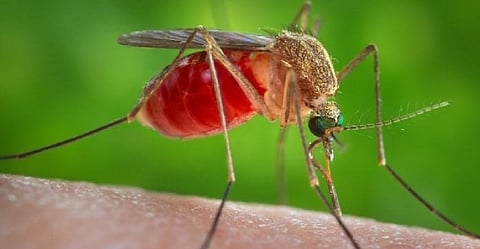

CHENNAI: After the heavy rains, the surge in cases of vector-borne diseases is inevitable, say experts. The State Health Department officials ask the public to follow safety measures and ensure early intervention to prevent an outbreak of any infection.
The department officials say that there can be an increase in waterborne diseases such as Diarrhoea, Typhoid, Hepatitis and Leptospirosis or skin infection such as Trench Foot, Immersion Eye infection, and flu after the rain.
"The number of cases of dengue in particular saw a surge a month ago with more than 40 cases of fever and other suspected vector-borne diseases daily. It declined slowly and the numbers were down to about 20 every day.
However, the rains lead to water stagnation and then if not cleaned, it becomes a breeding ground for mosquitoes that cause dengue, malaria and other vector-borne diseases," says Dr P Balaji, dean, of Stanley Medical College and Hospital.
The officials instructed the civic authorities that super-chlorination should be done in all areas affected by floods, any leaks/contamination suspected in the existing water supply should be completely stopped and to provide alternate protected sources.
"The most common symptoms of dengue include high fever, running nose, a mild skin rash, cough, and pain behind the eyes and in the joints. However, some people may develop a red and white patchy skin rash followed by loss of appetite, nausea, vomiting, etc.
A severe form of dengue fever, also called dengue hemorrhagic fever can cause severe bleeding, a sudden drop in blood pressure (shock) and death, " says Dr V Anantha Padmanabhan, Consultant General Medicine, Fortis Malar Hospital.
Doctors say that according to International guidelines unless a patient's platelet count is below 10,000, and spontaneous, active bleeding, no platelet transfusion is required.
Platelet deficiency is not the primary cause of death in people suffering from Dengue. However, what most people do not realize is that the first line of treatment for dengue is not platelet transfusion. It does more harm than good if used in a patient whose counts are over 10,000, he added.
The department has stated that medical care should be given for minor ailments like fever, minor injuries, skin diseases etc., immediately on spot.
The department is conducting fever camps in the affected areas and early fever clusters will be identified and treatment will be provided.
Visit news.dtnext.in to explore our interactive epaper!
Download the DT Next app for more exciting features!
Click here for iOS
Click here for Android